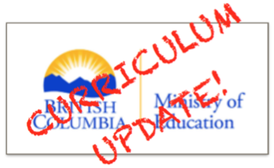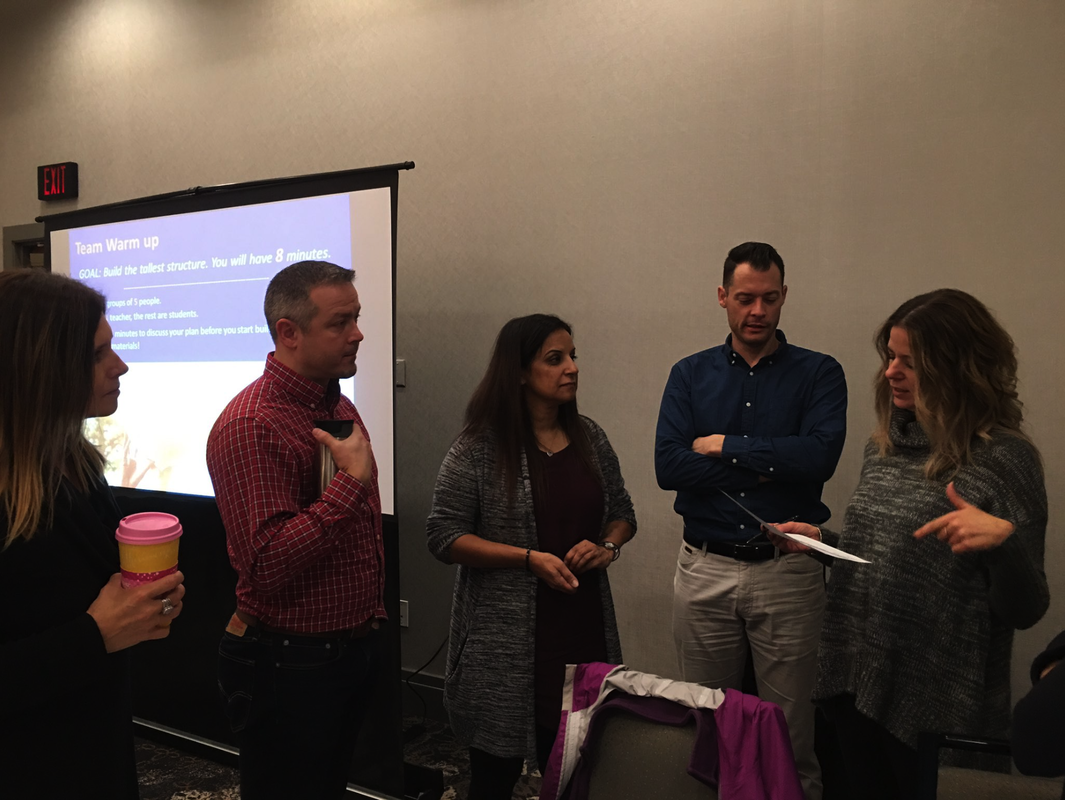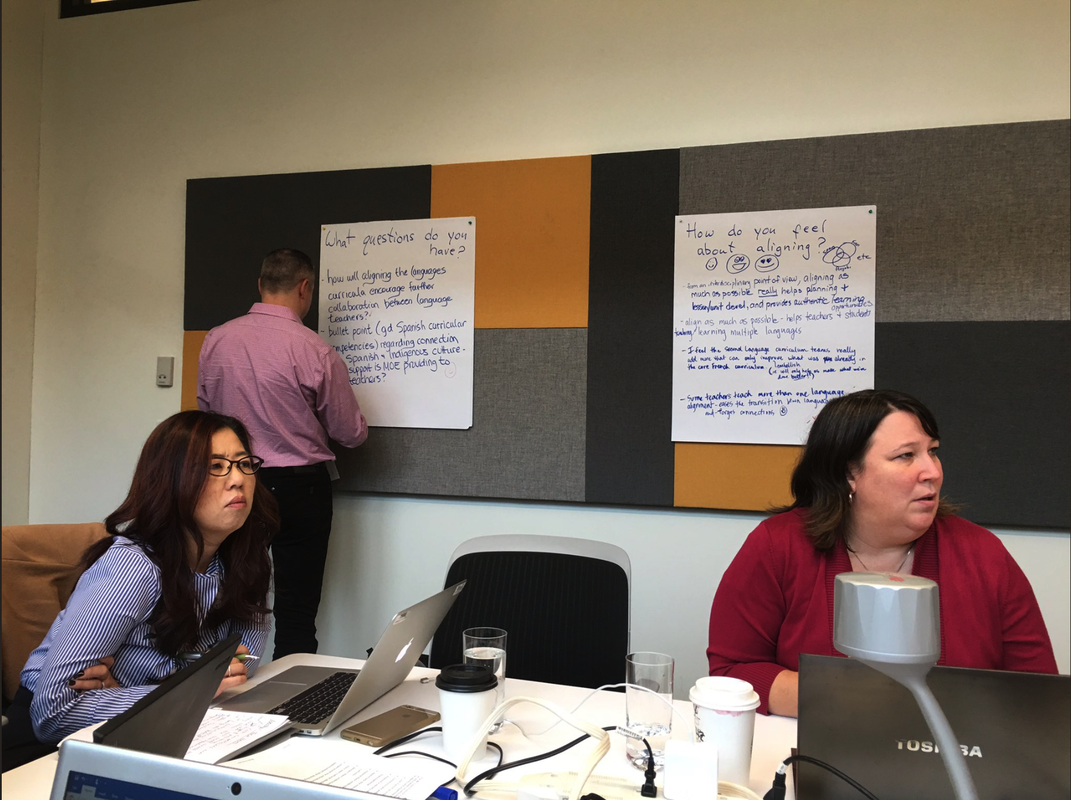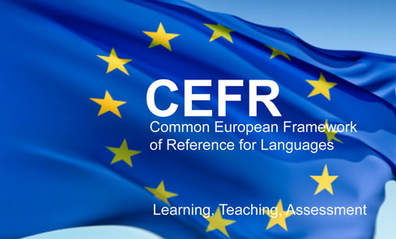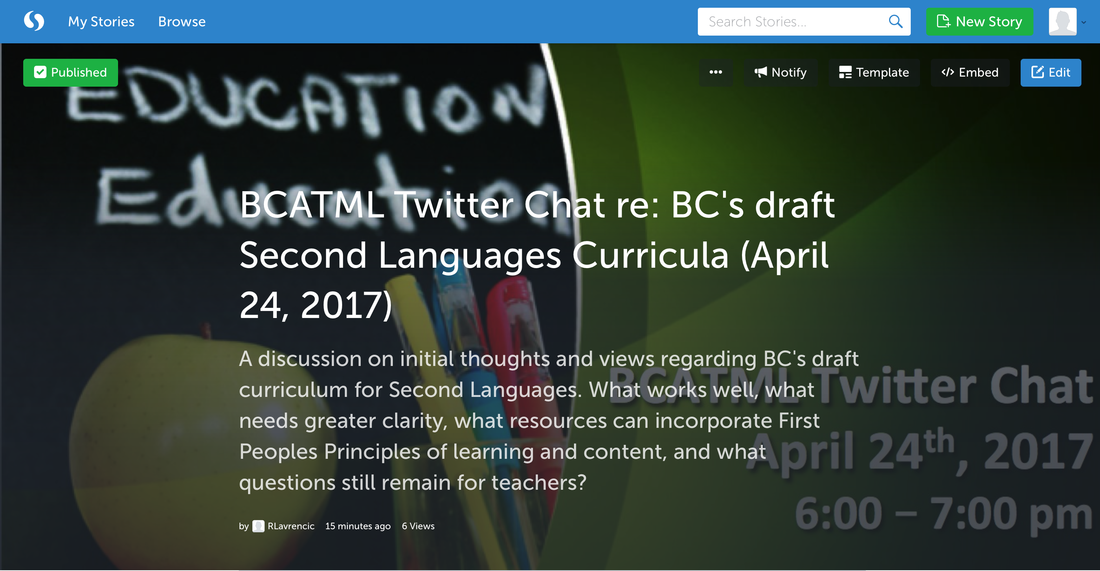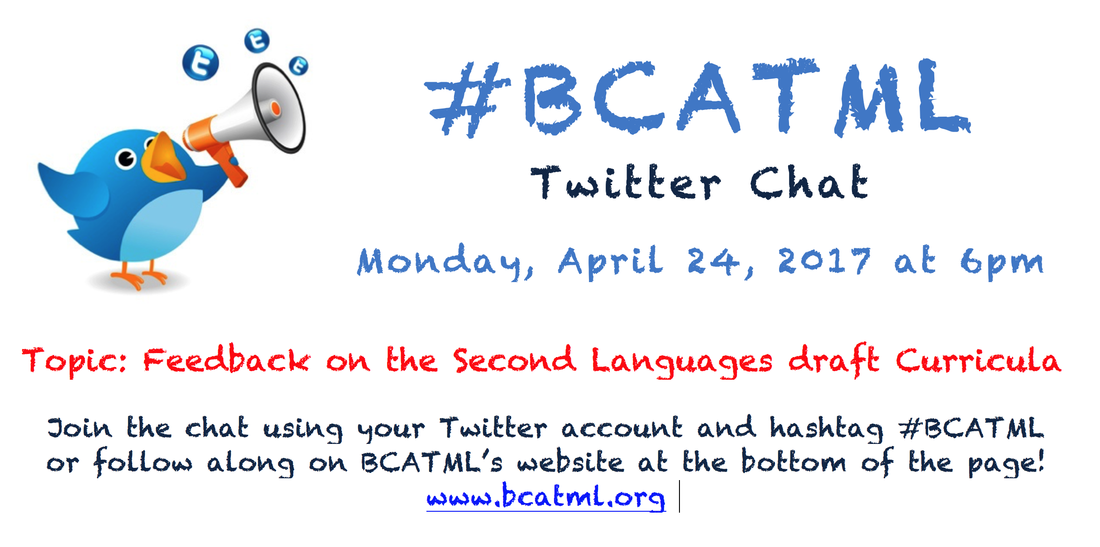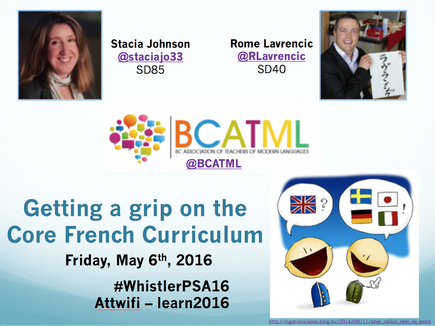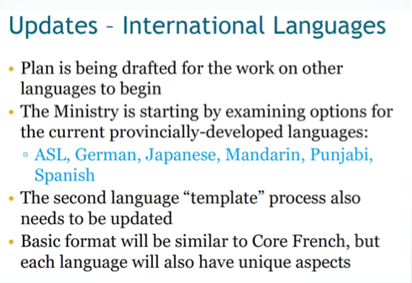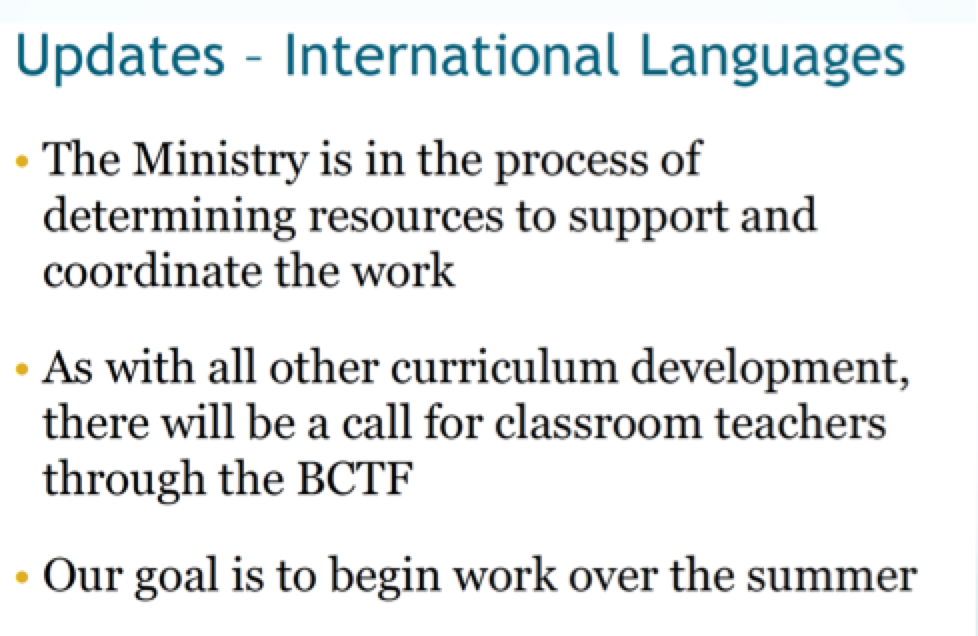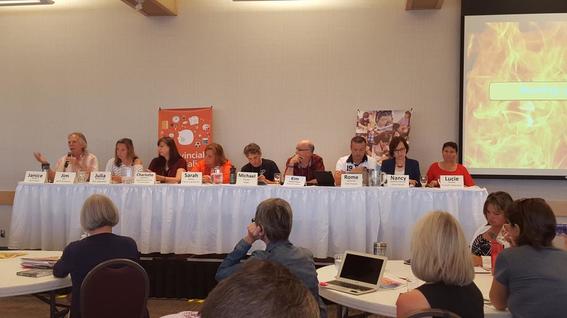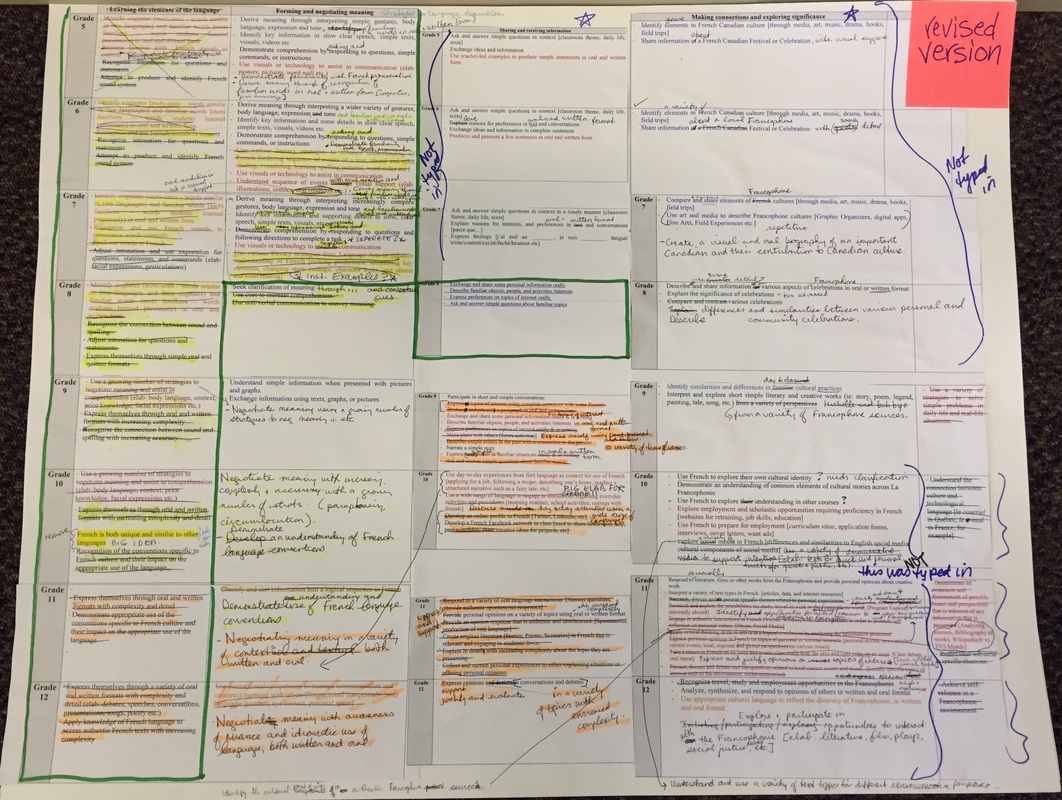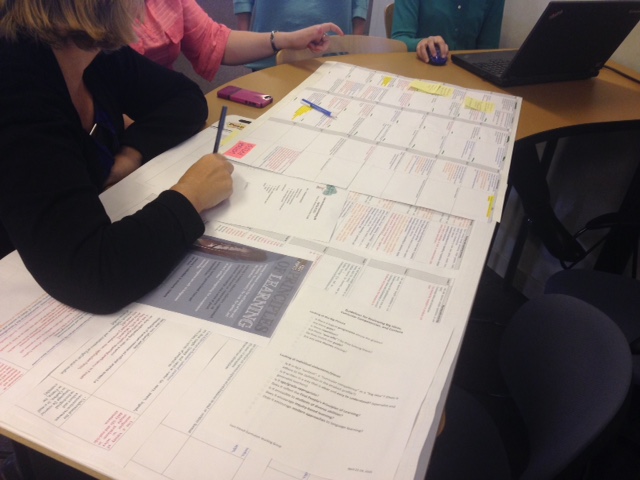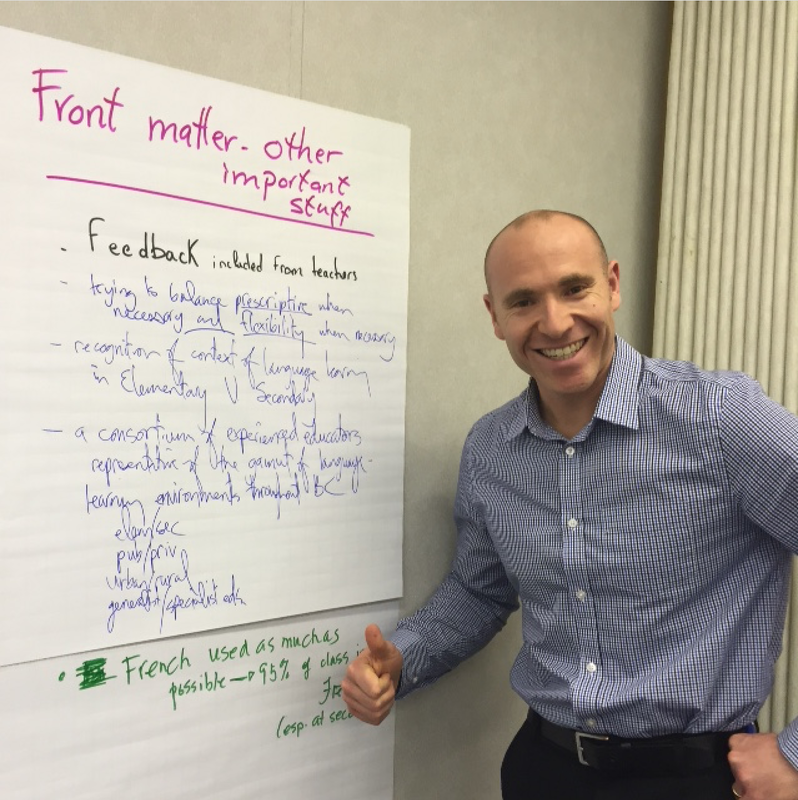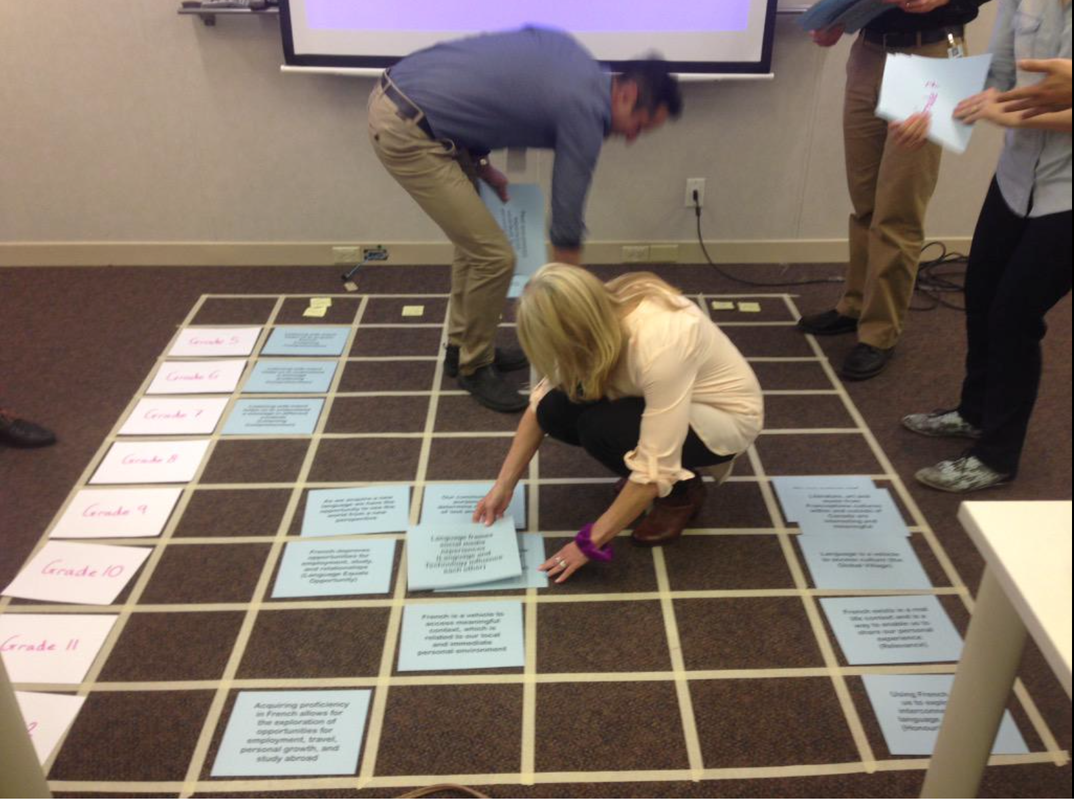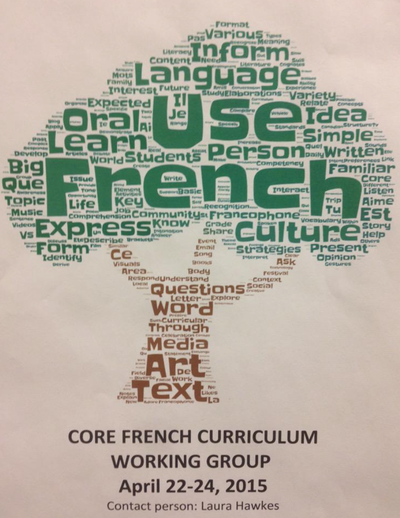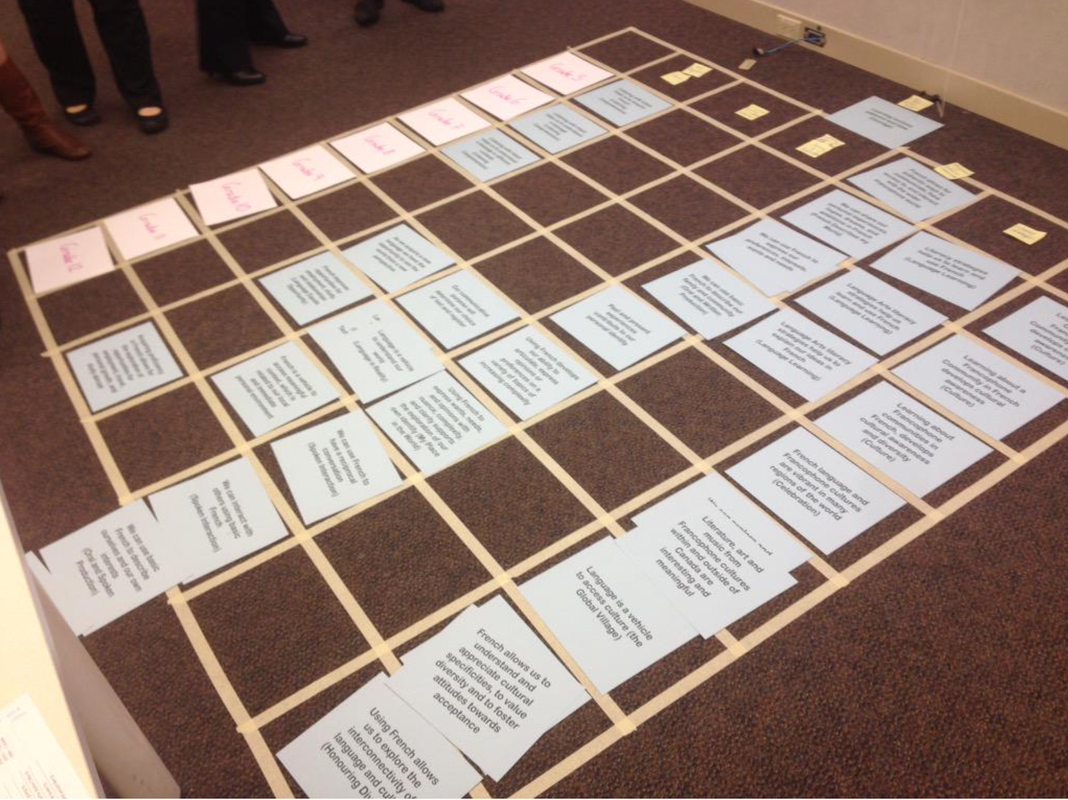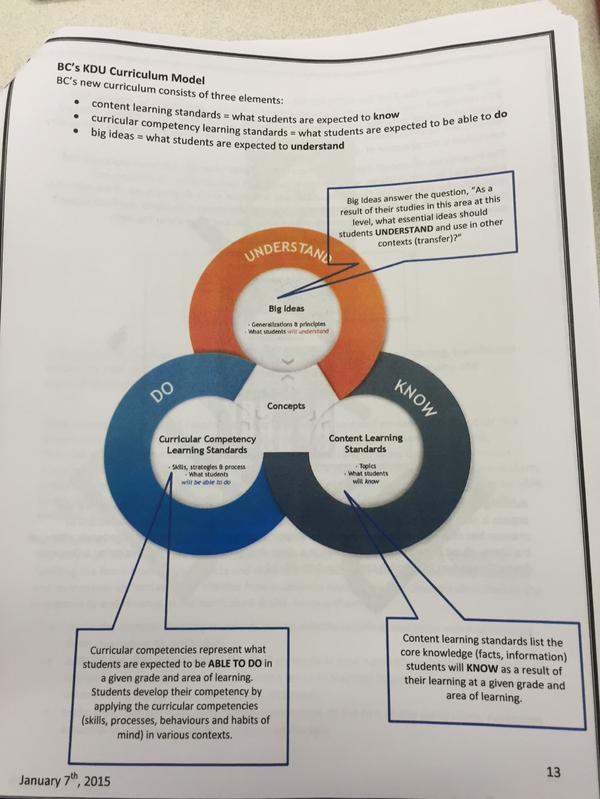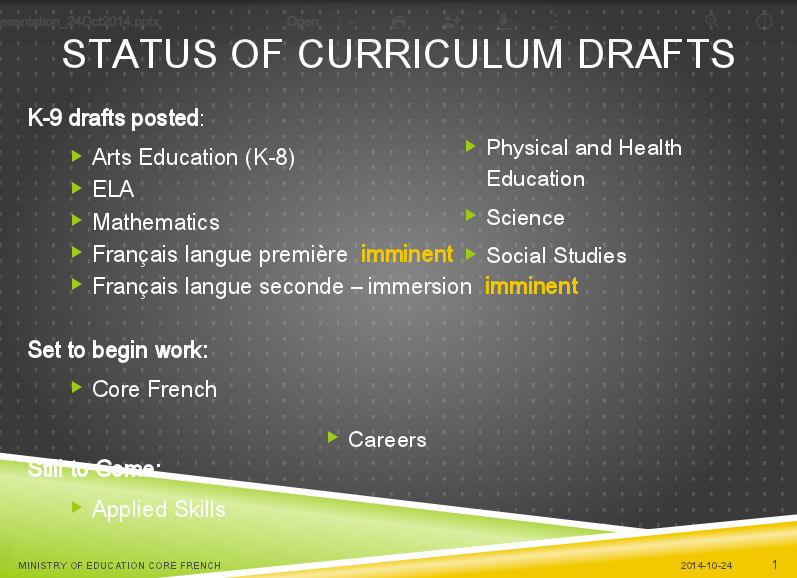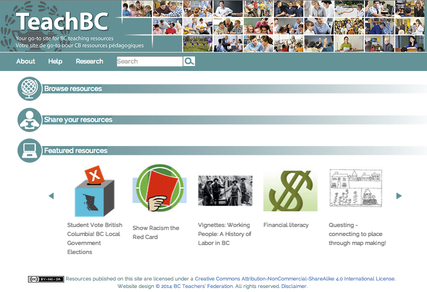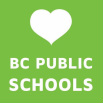BC's NEW Second Languages Curriculum is now online and ready for feedback!
The BCATML is excited to announce that the Ministry of Education has released the new draft of BC's Core French Curriculum.
It can be viewed by clicking here or visit the Ministry's website at https://curriculum.gov.bc.ca/curriculum/10-12#sl.
We look forward to reading your comments, suggestions and feedback about this transformative document.
Please email us at [email protected] if you have any helpful curriculum documents to share!
It can be viewed by clicking here or visit the Ministry's website at https://curriculum.gov.bc.ca/curriculum/10-12#sl.
We look forward to reading your comments, suggestions and feedback about this transformative document.
Please email us at [email protected] if you have any helpful curriculum documents to share!
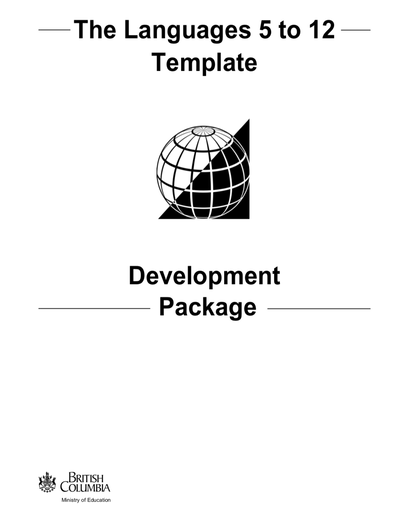
March 6-7, 2019
BCATML representatives returned to the Ministry to begin updating the Languages 5 to 12 Template, a 246-page document using the Integrated Resource Package of the former curriculum (2003). This template needed to be streamlined and updated to the new KDU framework of the BC curriculum. Initial discussions with BCATML began two years ago, and BCATML was successful in advocating for the completion of this ministerial mandate despite the challenges of not having a dedicated Languages Curriculum Coordinator at the Ministry.
The Languages Template Team was composed of four BCATML members, one independent school teacher, and Ministry Curriculum Coordinators for Math, Science, Social Studies, and Physical Health Education. There were three specific goals for this meeting:
It is expected that the Ministry will finalize the Languages Template by June 2019 for those school districts and communities wishing to develop language education programs for which there is local interest, such as Arabic, Croatian, and Russian (among many others).
BCATML representatives returned to the Ministry to begin updating the Languages 5 to 12 Template, a 246-page document using the Integrated Resource Package of the former curriculum (2003). This template needed to be streamlined and updated to the new KDU framework of the BC curriculum. Initial discussions with BCATML began two years ago, and BCATML was successful in advocating for the completion of this ministerial mandate despite the challenges of not having a dedicated Languages Curriculum Coordinator at the Ministry.
The Languages Template Team was composed of four BCATML members, one independent school teacher, and Ministry Curriculum Coordinators for Math, Science, Social Studies, and Physical Health Education. There were three specific goals for this meeting:
- to articulate the key structure and components of the Languages Template;
- to determine desired components of a template handbook/instructions document; and
- to gather advice about considerations related to languages development going forward.
It is expected that the Ministry will finalize the Languages Template by June 2019 for those school districts and communities wishing to develop language education programs for which there is local interest, such as Arabic, Croatian, and Russian (among many others).
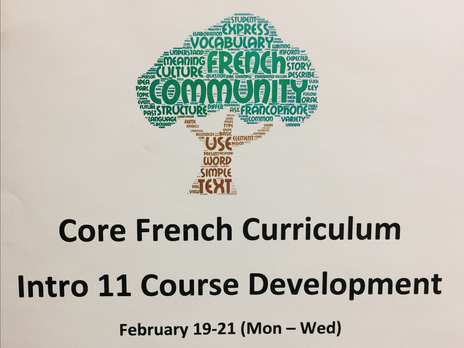
February 21, 2018
On the final day drafting curriculum for the Core French Introductory 11 course, the Writing Team finalized the Curricular Competencies and Content elements and began revising and updating the elaborations for the learning standards. Suggestions for improvement to the Core French 5-12 elaborations were also made; where appropriate.
The Writing Team drafted the Front Matter for this course giving special attention to the learning dynamics; such as defining the rigour, pace, and intensity of the course as well as illustrating the ideal student candidate. It is expected that the draft version of this course will be published online by June for schools to pilot the course this September.
On the final day drafting curriculum for the Core French Introductory 11 course, the Writing Team finalized the Curricular Competencies and Content elements and began revising and updating the elaborations for the learning standards. Suggestions for improvement to the Core French 5-12 elaborations were also made; where appropriate.
The Writing Team drafted the Front Matter for this course giving special attention to the learning dynamics; such as defining the rigour, pace, and intensity of the course as well as illustrating the ideal student candidate. It is expected that the draft version of this course will be published online by June for schools to pilot the course this September.
|
February 20, 2018
The Writing Team completed drafting elements for the Content of Core French Introductory 11, and began writing the Curricular Competencies based on the Big Ideas established from the previous day. Special attention was given to examine the continuum of learning of French between Grades 5-12 and determine which elements would be best suited for this course. The team also redefined the Big Ideas based on the newly drafted Content and Curricular Competencies and made suggestions for improvement to the Core French 5-12 curriculum. The team will conclude its work tomorrow by defining all of the elaborations for Core French Introductory 11 and draft information to be included in the Front Matter. |
|
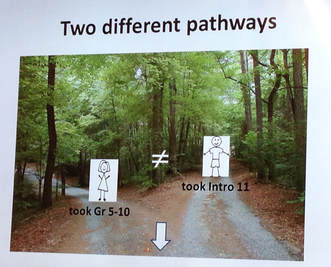
February 19, 2018
Some members of the Core French Writing Team returned to Victoria this week to begin writing curriculum for the province's first Core French Introductory 11 Course. It is expected that this course will be ready before school year's end for teachers to pilot beginning in September 2018.
Core French Introductory 11 is ideally designed for students who have no previous knowledge of French but wish to begin studying French. This course would be ideal for International students who are studying in BC and would like to study one of Canada's two official languages. As well, this course is well suited for students who studied another language other than French in Grades 5-8. Students who complete this intensive and accelerated course should have sufficient ability and preparedness to continue their studies with French 11 and 12 as students who studied French since Grades 5, but they are not expected to have the same French proficiency and range of vocabulary.
The Writing Team drafted the course goals by comparing and contrasting the goals of the other Introductory Language 11 courses as well as the current Core French curriculum. Additionally, the Writing Team drafted the Big Ideas and Content elements for Introductory Core French 11. Tomorrow, the team will finalize the Content elements and begin drafting curriculum for the Curricular Competencies.
Some members of the Core French Writing Team returned to Victoria this week to begin writing curriculum for the province's first Core French Introductory 11 Course. It is expected that this course will be ready before school year's end for teachers to pilot beginning in September 2018.
Core French Introductory 11 is ideally designed for students who have no previous knowledge of French but wish to begin studying French. This course would be ideal for International students who are studying in BC and would like to study one of Canada's two official languages. As well, this course is well suited for students who studied another language other than French in Grades 5-8. Students who complete this intensive and accelerated course should have sufficient ability and preparedness to continue their studies with French 11 and 12 as students who studied French since Grades 5, but they are not expected to have the same French proficiency and range of vocabulary.
The Writing Team drafted the course goals by comparing and contrasting the goals of the other Introductory Language 11 courses as well as the current Core French curriculum. Additionally, the Writing Team drafted the Big Ideas and Content elements for Introductory Core French 11. Tomorrow, the team will finalize the Content elements and begin drafting curriculum for the Curricular Competencies.

February 5, 2018
The Ministry has let superintendents know that there will be a seventh non-instructional day for the purposes of curriculum implementation during the 2018–19 school year. This will be the fourth year in a row where there is an additional day or days.
There is no change to the year bookends, and members do not need to work additional days or additional minutes. As with the past few years, the practical effect is fewer days in session for students so that members can collaborate, plan, prepare, and conduct in-service related to the revised curriculum.
Visit http://www.bctf.ca/IssuesInEducation.aspx?id=5646 to stay up to date with the many changes of the revised curriculum!
The Ministry has let superintendents know that there will be a seventh non-instructional day for the purposes of curriculum implementation during the 2018–19 school year. This will be the fourth year in a row where there is an additional day or days.
There is no change to the year bookends, and members do not need to work additional days or additional minutes. As with the past few years, the practical effect is fewer days in session for students so that members can collaborate, plan, prepare, and conduct in-service related to the revised curriculum.
Visit http://www.bctf.ca/IssuesInEducation.aspx?id=5646 to stay up to date with the many changes of the revised curriculum!
|
November 2-3, 2017
Members from the teams who are working on the drafts for the Second Languages curriculum met once again in Richmond to finalize the drafts. Each team reviewed the feedback that the Ministry has received so far. Most of the feedback was positive and came from a place of growth mindset. There were some valid concerns about creating entry-level curriculum for grade 9 in some language areas, such as Spanish and Punjabi. Introductory course curriculum was also edited and finalized. There was a discussion on the diction to be used in the language template, and it was voted on that the three headings under which curricular competencies would be organized would be as follows: thinking, communication, and social and personal awareness. This ties in effectively with the core competencies already in place. The Ministry mentioned that there would be a follow-up in the future with creating instructional samples and reviewing the CEFR and how it might support the upcoming curriculum. The new dates for curriculum implementation were also announced. Please view the new implementation dates on the government website: https://curriculum.gov.bc.ca/curriculum/10-12 |
Curriculum Writing Team members collaborating together.
|
|
October 23 - 24, 2017
Three years to the day, members of the Core French Curriculum Writing Team returned to Victoria on the heels of Super Conference 2017 to begin aligning the Core French curriculum to that of the Second Languages curricula. These intensive meetings allowed members to share and review feedback from the field regarding the direction and implementation of Core French for Grades 5 to 9. A number of key decisions were announced regarding the Core French and Second Languages curricula. The first announcement is that work will begin in the new year on creating curriculum for a new Intro 11 Core French course. We are pleased to see this alternate entry point added for Core French students as it will undoubtedly help International Students (and others) who have never studied French before to begin learning. Another important announcement from Ministry staff was the decision to re-examine the current language referencing the Common European Framework for Reference for Languages (CEFR). BCATML’s Executive members on all the different writing teams have remained steadfast over the years asking Ministry officials for better inclusion and reference to the CEFR in the current draft curricula. The Ministry received numerous feedback letters and comments from teachers across the province asking for more explicit reference to the CEFR as well. The Ministry will work with a group of educators to explore the possibility of producing a CEFR-based optional-use companion resource document to use with the KDU framework of the redesigned curricula. BCATML is thrilled to share this piece of news with second language teachers The Ministry also announced that all curricula for Grades K to 10 will commence full implementation in July 2018. Draft curricula for Grades 11 and 12 will remain optional for teachers to implement until 2019. This extended timeline will allow all Writing Teams additional time for a more thorough revision process. It is expected the Ministry will also announce a new reporting order some time in Spring 2018. Teachers are encouraged to visit the Issues in Education link in the top menu of the BCTF home page (www.bctf.ca) for all the up to the minute Ministry reporting orders, policies, and BCTF Education Change Bulletins. Some members of the Core French Writing Team worked with members of the Second Languages Writing Team to begin the alignment process of all the languages curricula. Teachers can expect to see the Curricular Competencies of all the curricula organized under three headings relating to the Core Competencies sub-groups of Thinking, Communication, and Social and Personal Awareness. Language teachers can expect to see the inclusion of their target language(s) referred to specifically in each grade level’s Big Ideas, thus valuing and acknowledging the importance of each language. Instructional samples will also be reviewed in the coming months to provide a greater variety for teachers and students to use in order to better understand the redesigned curricula. Lastly, all writing teams began revisions to their respective curriculum documents eliminating the number of repetitions contained in both the Curricular Competencies and Content elements. This revision work will reduce the number of items listed under both curriculum components, thus streamlining the readability of each grade’s Curricular Competencies and Content elements. |
Core French Writing Team members Lily Kamarn, Rome Lavrencic, and Stacey Sveistrup review feedback from BC teachers.
Ministry has agreed to create a CEFR-based optional-use companion resource document to use with the current drafts.
Ministry announced new curriculum implementation schedule
Core French Writing Team members Lily Kamarn, Rome Lavrencic, and Nancy Griffith-Zahner collaborate with Second Languages Writing Teams to align the Core French and Second Languages curricula.
|
|
April 24, 2017
BCATML hosted another Twitter Chat to discuss the draft curricula for Second Languages (other than French). The entire chat can be read on www.storify.com or by visiting: https://storify.com/RLavrencic/bcatml-twitter-chat-re-bc-s-draft-second-languages. We remind teachers that to send in their feedback to the Ministry by emailing [email protected]. The Curriculum Writing Team for Second Languages will meet again in early June 2017 to look at the initial feedback received by the province and begin working on the Introductory Language 11 courses. |
April 1st, 2017
|
BCATML will host another Twitter chat on Monday, April 24th at 6:00 pm. We invite teachers to give their insight and views on the draft curricula for second languages (other than French).
This hour-long chat will be moderated by BCATML Secretary and Curriculum Team Writer Antonella Garcia (@msagarcia314) and BCATML President Rome Lavrencic (@RLavrencic). The chat will use a Question1 / Answer1 format with five pre-generated questions to help the Curriculum Team Writing members with revising the draft curricula. The five questions that will be asked during the chat are: Q1 In what ways do the curriculum elements (big ideas, curricular competencies, content) work well together? How do they not? Q2 Do the curriculum elements in your language area reflect what is important for all students to learn at each grade level? Q3 Which curriculum elements require greater clarity or more elaborations? Please specify. Q4 How can L2 teachers incorporate Aboriginal perspectives and knowledge into the redesigned curricula? What resources are needed? Q5 What questions, concerns or additional feedback do you have on the second languages draft curricula?
|
To learn how to participate in a Twitter chat using TweetDeck or HootSuite, please click here or read the article below.
If you don't have a Twitter account, you can follow the chat by reading the tweets on the bottom of the main page of BCATML's website under the #BCATML feed. We hope you can join us and look forward to hearing your thoughts on April 24th at 6:00 pm sharp! | ||||
Additional Languages Revised Curriculum Update:
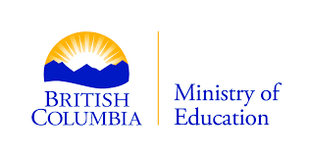
January 31, 2017
The Ministry of Education has recently released drafts of BC's Second Languages curricula for Grades 5 - 12 for the following subjects:
All drafts are available for review by visiting https://curriculum.gov.bc.ca/curriculum/10-12#sl.
Teachers are encouraged to review the drafts and to provide both positive and constructive feedback to the Curriculum Writing Teams by emailing your comments directly to the Ministry. All feedback - both individual and group submissions - can be emailed directly to [email protected]. Please be sure to identify your teaching situation (Public/Independent, Elementary/Secondary, etc.) in your feedback.
Please encourage your colleagues to review the draft curricula and to provide feedback to the Ministry. The more feedback that is received, the easier it will be for the Curriculum Writing Teams to represent the views and opinions from across British Columbia. BCATML's Language Representatives are also available to listen to your concerns and offer assistance regarding the curriculum. They can be found under the Contact Us tab.
The Ministry of Education has recently released drafts of BC's Second Languages curricula for Grades 5 - 12 for the following subjects:
- American Sign Language (ASL),
- German,
- Italian,
- Japanese,
- Korean,
- Mandarin,
- Punjabi,
- Spanish
All drafts are available for review by visiting https://curriculum.gov.bc.ca/curriculum/10-12#sl.
Teachers are encouraged to review the drafts and to provide both positive and constructive feedback to the Curriculum Writing Teams by emailing your comments directly to the Ministry. All feedback - both individual and group submissions - can be emailed directly to [email protected]. Please be sure to identify your teaching situation (Public/Independent, Elementary/Secondary, etc.) in your feedback.
Please encourage your colleagues to review the draft curricula and to provide feedback to the Ministry. The more feedback that is received, the easier it will be for the Curriculum Writing Teams to represent the views and opinions from across British Columbia. BCATML's Language Representatives are also available to listen to your concerns and offer assistance regarding the curriculum. They can be found under the Contact Us tab.
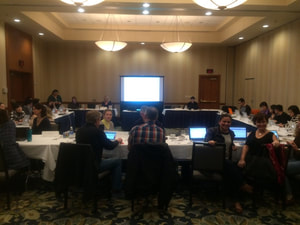
December 1-2, 2016
The additional languages’ teams met for the final working session on the curriculum drafts on Dec 1st and 2nd. The first day was spent organizing the curricular competencies under the following three headings: language thinking, communicating and personal and social awareness. We also added new definitions under elaborations for the words place and ways of knowing.
The Ministry of Education shared with us some analysis they did of all the language drafts to make sure there was common language around the learnings standards, namely coherent curricular competencies and content. The idea that language and culture are connected through oral histories, identity, and place was added as a content piece.
The second day was spent formatting the documents into the language template. Each team met with a Ministry member who reviewed the specific vocabulary and examples used in the content elaborations. The teams were encouraged to include one or two examples for content to be covered. Long prescriptive lists of vocabulary in a scope and sequence format were discouraged. This is to make sure that the curriculum remains concept based and steers clear of the previous long prescriptive lists present in the previous language integrated resources packages (IRPs).
By the end of the day, each team was required to email in their completed draft to the Ministry members who were present with us throughout our work. They will now take each draft and make sure it is formatted correctly before it goes out to copy editors and desktop publishers. Each draft will also be looked at by internal Aboriginal and Inclusive Education Ministry teams for feedback. After this, the drafts will be made public. They will be ready to view by the end of January 2017. At that point please review them and send in feedback by June 30th. We will also be looking forward to your input concerning late entry into languages and what a Beginner’s language draft might look like. We look forward to hearing from you and any recommendations that you may have.
The additional languages’ teams met for the final working session on the curriculum drafts on Dec 1st and 2nd. The first day was spent organizing the curricular competencies under the following three headings: language thinking, communicating and personal and social awareness. We also added new definitions under elaborations for the words place and ways of knowing.
The Ministry of Education shared with us some analysis they did of all the language drafts to make sure there was common language around the learnings standards, namely coherent curricular competencies and content. The idea that language and culture are connected through oral histories, identity, and place was added as a content piece.
The second day was spent formatting the documents into the language template. Each team met with a Ministry member who reviewed the specific vocabulary and examples used in the content elaborations. The teams were encouraged to include one or two examples for content to be covered. Long prescriptive lists of vocabulary in a scope and sequence format were discouraged. This is to make sure that the curriculum remains concept based and steers clear of the previous long prescriptive lists present in the previous language integrated resources packages (IRPs).
By the end of the day, each team was required to email in their completed draft to the Ministry members who were present with us throughout our work. They will now take each draft and make sure it is formatted correctly before it goes out to copy editors and desktop publishers. Each draft will also be looked at by internal Aboriginal and Inclusive Education Ministry teams for feedback. After this, the drafts will be made public. They will be ready to view by the end of January 2017. At that point please review them and send in feedback by June 30th. We will also be looking forward to your input concerning late entry into languages and what a Beginner’s language draft might look like. We look forward to hearing from you and any recommendations that you may have.

November 9-10, 2016
The teams who are revising the additional languages’ curriculum in BC met on November 9th and 10th with the Ministry of Education.
The first day was spent creating the “Introduction” and “What’s New” sections of the curriculum. The examples for French were looked at and then revised to suit each specific language. We then had a discussion about students exiting language study in BC and the Ministry shared data that indicated grade 11 was the most popular completion point. It was felt that many students took additional languages until the end of grade 11 level to help with university entrance.
We also discussed late entry into language classes. The main question being, “At what grade level should we have beginner’s courses for students who want to switch to other languages, who are new immigrants or who had discontinued language study at an earlier age?” Up until now Beginner’s courses have been offered at the grade 11 level and it was thought that this was a good late entry point. The idea of having a Beginner’s 11 course for French was also mentioned. Throughout this discussion, the importance of multilingualism was raised and a few suggested that a course in which students could explore many languages at the beginner level simultaneously could prove to be beneficial to those who want to increase intercultural competencies and to become globalized citizens.
The second day was spent working intensely on completing the elaborations portions for each grade level and language. By the end of the day each team had to email their work to the Ministry. Currently, the Ministry is looking over each draft and sending feedback to each team. The next meeting dates are set for Dec. 1st and 2nd. A draft should be ready to send out to BC educators for feedback by the end of January.
The teams who are revising the additional languages’ curriculum in BC met on November 9th and 10th with the Ministry of Education.
The first day was spent creating the “Introduction” and “What’s New” sections of the curriculum. The examples for French were looked at and then revised to suit each specific language. We then had a discussion about students exiting language study in BC and the Ministry shared data that indicated grade 11 was the most popular completion point. It was felt that many students took additional languages until the end of grade 11 level to help with university entrance.
We also discussed late entry into language classes. The main question being, “At what grade level should we have beginner’s courses for students who want to switch to other languages, who are new immigrants or who had discontinued language study at an earlier age?” Up until now Beginner’s courses have been offered at the grade 11 level and it was thought that this was a good late entry point. The idea of having a Beginner’s 11 course for French was also mentioned. Throughout this discussion, the importance of multilingualism was raised and a few suggested that a course in which students could explore many languages at the beginner level simultaneously could prove to be beneficial to those who want to increase intercultural competencies and to become globalized citizens.
The second day was spent working intensely on completing the elaborations portions for each grade level and language. By the end of the day each team had to email their work to the Ministry. Currently, the Ministry is looking over each draft and sending feedback to each team. The next meeting dates are set for Dec. 1st and 2nd. A draft should be ready to send out to BC educators for feedback by the end of January.
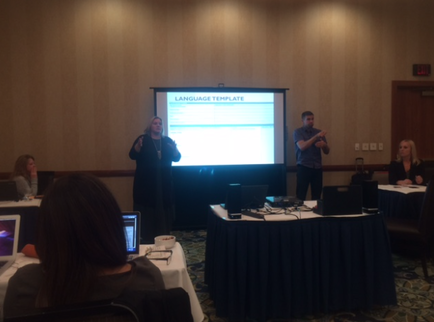
October 9, 2016
The languages curriculum teams met once again on Oct. 3rd and 4th to continue their work in revising BCs additional languages curriculum.
The first day focused on updates and suggestions each language area had for the goals and big ideas. The rest of the day was looking at the French core competencies and seeing if those fit in with each language area. Where changes were needed, teams developed their own competencies that they felt were relevant to their language and culture. By the end of the day, language teams had to send in their competencies to the Ministry. The Ministry spent the evening finding commonalities in order to create a Languages Template that included the core competencies and all encompassing linguistic and cultural headings that could be used by other languages in the province when they design their curriculum documents. Recently, Russian teachers and a leader from FNESC have asked about templates for other languages.
The second day was focused on reviewing the content present in the French curriculum. Content that was seen as necessary for all languages was kept and each language added specific content where needed. For example, the Italian team added content about Italian contributions to Canadian society, as well as, regional dialect differences of Italian communities around the world. By the end of the day, teams were asked to email in their competencies and content. This will be reviewed by the Ministry in the next few weeks and feedback and suggestions will be given back to the teams when we meet again in November. Some teams began work on elaborations for both the competencies and the content. For the next meeting, we are to discuss and prepare as much as possible the elaborations section.
The Ministry mentioned that there could be a possibility of canceling the December meetings and having a rough draft of competencies, content and elaborations ready to be sent out to teachers after the November meetings. It was voiced by many teams that this timeline would be too rushed. Teams felt that they needed time to delve into elaborations and then have time to reflect and revise ideas before having it all sent out to the general public for feedback.
However, we do encourage feedback as soon as possible from members of the educational community and there is a chance to offer feedback on the goals, big ideas, curricular competencies, content and the proposed languages template at the BCATML conference on Oct. 21st, 2016 at Burnaby South Secondary. Laura Hawkes and Wang Xie who are Ministry representatives and who have been involved from the start will be at the conference to discuss the new curriculum. We encourage you to drop by the MInistry of Education table in the publishers and exhibitors area and take a look at the draft documents that have been produced so far and to give any suggestions for the teams who will meet again Nov. 9th and 10th and then Dec. 1 and 2nd.
The languages curriculum teams met once again on Oct. 3rd and 4th to continue their work in revising BCs additional languages curriculum.
The first day focused on updates and suggestions each language area had for the goals and big ideas. The rest of the day was looking at the French core competencies and seeing if those fit in with each language area. Where changes were needed, teams developed their own competencies that they felt were relevant to their language and culture. By the end of the day, language teams had to send in their competencies to the Ministry. The Ministry spent the evening finding commonalities in order to create a Languages Template that included the core competencies and all encompassing linguistic and cultural headings that could be used by other languages in the province when they design their curriculum documents. Recently, Russian teachers and a leader from FNESC have asked about templates for other languages.
The second day was focused on reviewing the content present in the French curriculum. Content that was seen as necessary for all languages was kept and each language added specific content where needed. For example, the Italian team added content about Italian contributions to Canadian society, as well as, regional dialect differences of Italian communities around the world. By the end of the day, teams were asked to email in their competencies and content. This will be reviewed by the Ministry in the next few weeks and feedback and suggestions will be given back to the teams when we meet again in November. Some teams began work on elaborations for both the competencies and the content. For the next meeting, we are to discuss and prepare as much as possible the elaborations section.
The Ministry mentioned that there could be a possibility of canceling the December meetings and having a rough draft of competencies, content and elaborations ready to be sent out to teachers after the November meetings. It was voiced by many teams that this timeline would be too rushed. Teams felt that they needed time to delve into elaborations and then have time to reflect and revise ideas before having it all sent out to the general public for feedback.
However, we do encourage feedback as soon as possible from members of the educational community and there is a chance to offer feedback on the goals, big ideas, curricular competencies, content and the proposed languages template at the BCATML conference on Oct. 21st, 2016 at Burnaby South Secondary. Laura Hawkes and Wang Xie who are Ministry representatives and who have been involved from the start will be at the conference to discuss the new curriculum. We encourage you to drop by the MInistry of Education table in the publishers and exhibitors area and take a look at the draft documents that have been produced so far and to give any suggestions for the teams who will meet again Nov. 9th and 10th and then Dec. 1 and 2nd.
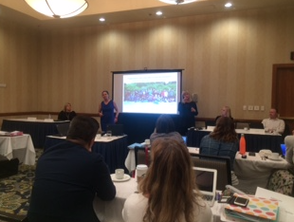
September 24, 2016
On Sept. 19th and 20th educational representatives met to discuss moving forward with revising the additional languages’ curriculum in BC. The language teams that met covered the areas of American Sign Language, German, Italian, Japanese, Korean, Mandarin, Punjabi and Spanish. It was mentioned that a framework would be created so that other languages, such as Russian, could develop their own revised curriculum in the future.
On the morning of the first day, participants reviewed the reasons for curriculum updates in BC. In addition, a representative from FNESC shared the work being done around the province in embedding Aboriginal learning principles, content and worldviews.
In the afternoon, discussions focused around the need for concept-based learning and the KDU model as a framework (Know, Understand and Do), which is at the heart of the revised curriculum in BC. This covers the big ideas, core and curricular competencies and content needed in grades 5-12 for all additional languages. The process that the French teachers went through, as they revised the curriculum, was shared with the participants and common linguistic and cultural goals were talked about for all languages. Each language group was encouraged to develop one big idea and then to work through the curricular competencies and content for that big idea. It became clear that each language would be unique based on its linguistic and cultural needs and, as a result, it was made clear that each language may not be able to follow the French template exactly. In other words, one cannot just remove the word French and replace it with another language when revising the additional languages curriculum. For instance, languages requiring different script(s) would need to have a place for that in the revised curriculum and it was also mentioned that elaborations with videos (using sign language) would be helpful for American Sign Language teachers.
Questions were asked about assessment and using the Common European Framework of Reference for Languages. The Ministry asked us to “park” assessment for now, meaning this area will be discussed later. As far as the CEFR, it sounds like teachers will be able to use this if they desire, but it may not be written directly into the curriculum documents.
The Additional Languages Curriculum Writing Team will meet again October 3rd and 4th, November 8th and 9th and December 1st and 2nd. The goal is to have a draft out by early 2017. More news to follow…
On Sept. 19th and 20th educational representatives met to discuss moving forward with revising the additional languages’ curriculum in BC. The language teams that met covered the areas of American Sign Language, German, Italian, Japanese, Korean, Mandarin, Punjabi and Spanish. It was mentioned that a framework would be created so that other languages, such as Russian, could develop their own revised curriculum in the future.
On the morning of the first day, participants reviewed the reasons for curriculum updates in BC. In addition, a representative from FNESC shared the work being done around the province in embedding Aboriginal learning principles, content and worldviews.
In the afternoon, discussions focused around the need for concept-based learning and the KDU model as a framework (Know, Understand and Do), which is at the heart of the revised curriculum in BC. This covers the big ideas, core and curricular competencies and content needed in grades 5-12 for all additional languages. The process that the French teachers went through, as they revised the curriculum, was shared with the participants and common linguistic and cultural goals were talked about for all languages. Each language group was encouraged to develop one big idea and then to work through the curricular competencies and content for that big idea. It became clear that each language would be unique based on its linguistic and cultural needs and, as a result, it was made clear that each language may not be able to follow the French template exactly. In other words, one cannot just remove the word French and replace it with another language when revising the additional languages curriculum. For instance, languages requiring different script(s) would need to have a place for that in the revised curriculum and it was also mentioned that elaborations with videos (using sign language) would be helpful for American Sign Language teachers.
Questions were asked about assessment and using the Common European Framework of Reference for Languages. The Ministry asked us to “park” assessment for now, meaning this area will be discussed later. As far as the CEFR, it sounds like teachers will be able to use this if they desire, but it may not be written directly into the curriculum documents.
The Additional Languages Curriculum Writing Team will meet again October 3rd and 4th, November 8th and 9th and December 1st and 2nd. The goal is to have a draft out by early 2017. More news to follow…
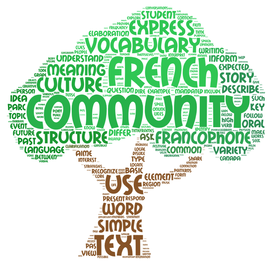
June 27, 2016
The Ministry of Education has finally released the revised Core French curriculum online! The Ministry has also made additional modifications to the functionality of the website. One feature that teachers will likely find useful is the single click option to have each grade exported into a Word or PDF document along with the online elaborations.
Teachers can expect to see instructional samples uploaded over the summer months now that copyright ownership of teachers' instructional samples have been agreed upon by both the BCTF and the Ministry of Education.
View the revised Core French curriculum at by clicking here, or by visiting the link below:
https://curriculum.gov.bc.ca/curriculum/core-french/
The Ministry of Education has finally released the revised Core French curriculum online! The Ministry has also made additional modifications to the functionality of the website. One feature that teachers will likely find useful is the single click option to have each grade exported into a Word or PDF document along with the online elaborations.
Teachers can expect to see instructional samples uploaded over the summer months now that copyright ownership of teachers' instructional samples have been agreed upon by both the BCTF and the Ministry of Education.
View the revised Core French curriculum at by clicking here, or by visiting the link below:
https://curriculum.gov.bc.ca/curriculum/core-french/

June 22, 2016
The BC Teachers' Federation closed its call today to select 16 representatives in order to begin work on re-writing the curriculum for American Sign Language, German, Italian, Japanese, Korean, Mandarin, Punjabi and Spanish as second languages.
BCTF invited BCATML to help nominate candidate representatives to the second languages curriculum team. The BCTF will appoint a total of 16 active BCTF members to the curriculum team; 2 representatives for each language. Where possible, a candidate was selected to represent the elementary voice and another candidate for secondary. It is expected, the Ministry will select representatives from independent schools as well as members from administration to assist. Work is slated to begin over the summer months, or early fall.
The BC Teachers' Federation closed its call today to select 16 representatives in order to begin work on re-writing the curriculum for American Sign Language, German, Italian, Japanese, Korean, Mandarin, Punjabi and Spanish as second languages.
BCTF invited BCATML to help nominate candidate representatives to the second languages curriculum team. The BCTF will appoint a total of 16 active BCTF members to the curriculum team; 2 representatives for each language. Where possible, a candidate was selected to represent the elementary voice and another candidate for secondary. It is expected, the Ministry will select representatives from independent schools as well as members from administration to assist. Work is slated to begin over the summer months, or early fall.
|
June 9, 2016
The Ministry of Education is assembling provincial curriculum development teams to draft curriculum for second languages for grades 5‒12, and has asked the BC Teachers’ Federation to appoint 16 representatives. Eight curriculum teams will be formed for the following languages:
Note that the BCTF selection committee can only appoint BCTF representatives, and not educators from independent schools. Interested educators who are not active BCTF members should contact the Ministry's Curriculum and Assessment Department. More information and the application form can be found on the BCTF webpage (http://www.bctf.ca/opportunities/MinistryCommittees.aspx) or by clicking on the file below. The deadline to apply is June 22nd at 5:00pm. |
| ||
|
May 6, 2016
BCATML Executive members Stacia Johnson and Rome Lavrencic presented a workshop around the redesigned Core French Curriculum to French teachers and other second languages teachers both at the elementary and secondary levels. The workshop was sold out with teachers who had questions pertaining to the redesigned Core French curriculum and how to begin implementation this September. An overview of the KDU framework (the basis for all of BC's redesigned curricula) was explained to help teachers better conceptualize and understand the 3D model of the Content, Curricular Competencies and Big Ideas of the curriculum. Updates on the revisions made to the Core French curriculum were also discussed followed by several Instructional samples to give teachers insight on how to plan activities for their classrooms. Web 2.0 tools and a several resource websites were shared, including a number of Aboriginal texts, stories, and websites to help teachers infuse their curriculum with Aboriginal perspectives and ways of knowing. Assessment ideas, rubrics, and curriculum plans were distributed throughout the session. |
| ||
April 18, 2016
Ministry of Education Curriculum Coordinator for Core French, Laura Hawkes, presented updates to the Core French redesigned curriculum at Surrey School District's Curriculum Implementation Day. At that workshop, the Ministry also revealed its plans to begin work on the curriculum redesign for other second languages, specifically ASL, German, Japanese, Mandarin, Punjabi and Spanish. Below are two slides shared by Laura Hawkes to Surrey School District Teachers. As more information becomes known, BCATML will post updates pertaining to the redesign of the other second languages on our website.
Ministry of Education Curriculum Coordinator for Core French, Laura Hawkes, presented updates to the Core French redesigned curriculum at Surrey School District's Curriculum Implementation Day. At that workshop, the Ministry also revealed its plans to begin work on the curriculum redesign for other second languages, specifically ASL, German, Japanese, Mandarin, Punjabi and Spanish. Below are two slides shared by Laura Hawkes to Surrey School District Teachers. As more information becomes known, BCATML will post updates pertaining to the redesign of the other second languages on our website.

March 3, 2016
Members of the Curriculum Writing Team began comprehensive edits to the Big Ideas, Curricular Competencies and Content pieces for the Core French curriculum. Team members gave particular attention to grades 7, 8 and 9 and were tasked with wordsmithing the curriculum to ensure continuity and consistency across these grades.
The Curriculum Writing Team later formed grade groups to align the curriculum for both grades 5-8 and 9-12. Each grade group was composed of members from the Writing Team who brought with them a wealth of knowledge and classroom experience and expertise to help facilitate in the review of the Big Ideas, Curricular Competencies and Content elements. Grade Group Teams spent the majority of the afternoon meticulously wordsmithing these curricular areas and also incorporated the second batch of feedback received from BC teachers and educators.
The Ministry has also quite recently updated the eligibility criteria and guidelines for provincial bursary programs in French. Bursaries are available for the following:
Members of the Curriculum Writing Team began comprehensive edits to the Big Ideas, Curricular Competencies and Content pieces for the Core French curriculum. Team members gave particular attention to grades 7, 8 and 9 and were tasked with wordsmithing the curriculum to ensure continuity and consistency across these grades.
The Curriculum Writing Team later formed grade groups to align the curriculum for both grades 5-8 and 9-12. Each grade group was composed of members from the Writing Team who brought with them a wealth of knowledge and classroom experience and expertise to help facilitate in the review of the Big Ideas, Curricular Competencies and Content elements. Grade Group Teams spent the majority of the afternoon meticulously wordsmithing these curricular areas and also incorporated the second batch of feedback received from BC teachers and educators.
The Ministry has also quite recently updated the eligibility criteria and guidelines for provincial bursary programs in French. Bursaries are available for the following:
- Post-secondary education in French (formerly Study Fellowship)
- Pre-service French teachers (formerly Teacher in Training)
- Teacher - Professional development in French (formerly French Teachers)
- Teacher - University courses in French (formerly French Teachers)
|
Of particular interest for French language teachers are the changes with the Teacher - Professional development in French bursary. Any BC certified teacher - whether in the public sector or independent school system - can apply for any in-person training program in French language and/or French teaching methods offered in Canada, including conferences hosted by ACELF, ACPI, APPIPC, BCATML, or BCLCA. This new allowance can greatly assist French teachers' professional development opportunities with organizations, such as BCATML. Registration fees of up to $1500 for one training program per year and up to $300 for one conference per year, plus a travel and accommodation subsidy. Teachers are also able to apply to this bursary every year, even if they have already received funding in previous applications! Full details can be found by clicking here or by downloading the eligibility criteria and guidelines PDF document below.
|
| ||
|
March 2, 2016
Members of BCATML's Executive returned to Victoria today with the rest of the Core French Curriculum Writing Team to continue revisions to the current draft. This will be our final set of meetings before the curriculum will be published later this summer when it will be ready for implementation for grades K-9, along with all other curricula. The committee began revisions to the Front Matter of the Core French Curriculum document while considering the new feedback received from educators around the province. There has been a much greater response from both elementary and middle years teachers since the last meeting, thus providing a better well-rounded perspective from the province. There was a greater focus today on reviewing the curriculum for Core French grades 7, 8 and 9 as well as rewriting some of the Curricular Competencies and Content elements to ensure better consistency and clarity across the grades. More revisions are still required, but the Writing Team is making steady progress on this front. Philosophical discussions continue to be had by the committee as a whole on how to better support teachers imbuing Aboriginal content |
and perspectives into the Core French curriculum, as well as whether greater references should be made to the CEFR (Common European Framework of Reference for Languages) in the current draft and the challenges that this presents given the KDU framework. These sets of meetings are expected to end this week on Friday, March 4th, 2016.
|
February 6, 2016
Here is a locally developed Design Framework from Delta School teacher Neil Stephenson that may help teachers along with their planning of the redesigned curriculum.
Here is a locally developed Design Framework from Delta School teacher Neil Stephenson that may help teachers along with their planning of the redesigned curriculum.
|
January 14, 2016
Director of K-12 Curriculum, Nancy Walt, met with the Core French Curriculum Team today to provide updates and answers to questions from the field about the draft curricula. She reported that the Core Competencies are in the midst of being revised. Teachers may likely see these competencies standardized from one to another in terms of the number of profiles for each and to provide better clarification of the illustrations in order to help contextualize the Core Competencies. Additionally, the Ministry reported that all Superintendents are expected to send their feedback to the Ministry this week regarding the initiatives and implementation measures that have taken place thus far in their respective school districts. On the issue of funding for resource support and development, Nancy Walt explained that the Ministry is seeking funding within current budgets, but also acknowledged that a large amount of funds have been allocated towards release time for teachers to work on the new curriculum including developing and revising instructional samples. As well, a few publishers have begun to develop new print (and electronic) resources for some of the new curricula despite those documents being in draft form still. It is the Ministry's hope that a project coordinator will be hired in the next six months to complete the revisions and edits on the instructional samples and have them uploaded for teachers to use before the end of this school year. Part of the delay has been the negotiations between the BCTF and the Ministry regarding the licensing agreement and ownership of teachers' instructional samples. Finally, suggestions and issues regarding functionalities and enhancements around the Ministry's website and search engine tool were also discussed. The Ministry is quite hopeful that many of our suggestions will be feasible and relatively quick to implement such as having a single-click option to have all elaborations printed in a word or PDF document for teachers to use offline. |
Lastly, Pat Horstead from SD36 (Surrey) will coordinate the Provincial Classroom Assessment Development team. While the Ministry does not set the practice around assessment for teachers, this committee will develop guidelines and principles for good classroom assessment on learning. It is the shared belief that students and parents need to see more descriptive feedback in a timely manner in order to better help the learner move forward with his or her learning. It is expected that the Provincial Classroom Assessment Development team will first meet at the end of January or beginning of February and develop a working document by the end of this school year.
|
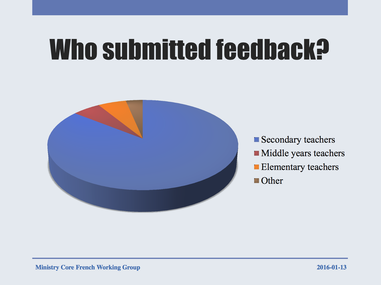
January 13, 2016
Members of BCATML's Executive returned to Victoria today for three days to begin revising the current draft of the Core French curriculum. The Ministry of Education has slowly received feedback from BC's Language teachers (not just Core French), with a majority of the feedback coming from secondary (specialist) teachers. The Ministry is still accepting feedback, and strongly encourages teachers to send in their comments - both positive and constructive - to the Ministry as soon as possible. Be sure to download the Core French feedback form and send it to [email protected].
Members of BCATML's Executive returned to Victoria today for three days to begin revising the current draft of the Core French curriculum. The Ministry of Education has slowly received feedback from BC's Language teachers (not just Core French), with a majority of the feedback coming from secondary (specialist) teachers. The Ministry is still accepting feedback, and strongly encourages teachers to send in their comments - both positive and constructive - to the Ministry as soon as possible. Be sure to download the Core French feedback form and send it to [email protected].
| feedback_form_core_french.docx |
|
A series of snapshot images of the curriculum revision process:
|
A majority of the day was spent towards organizing the feedback received thus far into common themes. Those themes include: General suggestions for all grades; Elements of the curriculum that were liked; Aboriginal content and First Peoples Principles of Learning; the Common European Framework of Reference, Ministry's website; Resources; Assessment and Teacher preparedness for implementation. Curriculum Team members also reviewed the feedback to consider the areas of the current draft that need to be revised and re-shaped based on the comments received and from this week's Twitter chat hosted by BCATML.
Lastly, the Ministry provided updates to many areas of the Tools section of its website. Teachers will find a useful Frequently Asked Questions (FAQ) section, as well as newly created short videos in English and French to help better understand the various elements of the curriculum redesign such as the KDU model, the Core Competencies, Big Ideas and Curricular Competencies. Finally, a resource guide (Aboriginal Worldviews and Perspectives in the Classroom) has been uploaded to help support teachers bring Aboriginal content and perspectives into the classroom. |
January 11, 2016 BCATML Twitter Chat: Implementation ideas for BC's new Core French Curriculum
Read the Tweets from tonight's Twitter chat by visiting: https://storify.com/staciajo33/bcatml-implementing-the-new-curriculum
Building on the success of our spring Twitter Chat, BCATML will host another free chat to discuss ideas to support teachers in implementing BC's new Core French curriculum on Monday, January 11th, 2016 from 6-7 pm. We will share ideas and strategies that teachers are currently using to pilot the new curriculum – in essence: what we are already doing that lends itself to the design of the new curriculum. Resources around Aboriginal Educational content will also be shared, and there will be an opportunity for teachers to let BCATML representatives on the Curriculum Review team know what their needs are to be able to fully implement the curriculum this fall. Be sure to join the chat using #BCATML. No Twitter account? No problems! You can follow along using the middle Twitter widget at the bottom of our homepage.
Here are the proposed questions that will be discussed Monday evening:
Q1: What do you already do that supports BC’s new Core French curriculum?
Q2: What do you do already that needs minor tweaks to support the new curriculum?
Q3: How are you going to incorporate Aboriginal ways of knowing into your lessons? How will you incorporate the First Peoples Principles of Learning into your lessons?
Q4: What would you like the Curriculum Review team to further clarify in the revision of the draft?
Building on the success of our spring Twitter Chat, BCATML will host another free chat to discuss ideas to support teachers in implementing BC's new Core French curriculum on Monday, January 11th, 2016 from 6-7 pm. We will share ideas and strategies that teachers are currently using to pilot the new curriculum – in essence: what we are already doing that lends itself to the design of the new curriculum. Resources around Aboriginal Educational content will also be shared, and there will be an opportunity for teachers to let BCATML representatives on the Curriculum Review team know what their needs are to be able to fully implement the curriculum this fall. Be sure to join the chat using #BCATML. No Twitter account? No problems! You can follow along using the middle Twitter widget at the bottom of our homepage.
Here are the proposed questions that will be discussed Monday evening:
Q1: What do you already do that supports BC’s new Core French curriculum?
Q2: What do you do already that needs minor tweaks to support the new curriculum?
Q3: How are you going to incorporate Aboriginal ways of knowing into your lessons? How will you incorporate the First Peoples Principles of Learning into your lessons?
Q4: What would you like the Curriculum Review team to further clarify in the revision of the draft?
View January 11's Twitter Chat on the new Curriculum by visiting:
https://storify.com/staciajo33/bcatml-implementing-the-new-curriculum
https://storify.com/staciajo33/bcatml-implementing-the-new-curriculum
|
December 1, 2015
The BC Teachers' Federation (BCTF) is seeking 12 public school teacher representatives willing to participate as BCTF representatives to the Ministry of Education’s Provincial Classroom Assessment Development Team for grades K-2, 3-5, 6-7 and 8-9. In addition to public school teachers, the Ministry will appoint educators from independent schools. These team members will not be appointed by the BCTF. The deadline to apply is December 15, 2015 at 5 pm. In order to support the new curriculum, the Ministry is seeking input on aligning classroom assessment frameworks with the new curriculum. Classroom assessment includes formative assessment, summative assessment, and communicating student learning to parents. The Ministry is seeking teachers from K‒9 who are well-versed in classroom assessment to provide ongoing feedback, input, and guidance in establishing an assessment framework, including the identification of necessary assessment resources. Members will be appointed as representatives to the Provincial Development Classroom Assessment Team for a one-year period. The term of appointment will be from January 2016 to January 2017. TTOC costs and travel expenses for team members will be covered by the Ministry, and any time required outside of meetings will be compensated according to government guidelines. Typically, the team meets three to four times during the year in Victoria, Richmond, Surrey, or Vancouver. Each meeting is scheduled for one to two days. Team members may also be asked to complete tasks individually to support the development of effective principles of assessment and provide materials in support of the new directions. More details will be provided by the Ministry. |
The deadline to submit the application form above is Tuesday, December 15th, 2015 at 5:00 pm. Email your application form to [email protected]. Direct enquiries can be sent to Janice Neden at j[email protected].
| ||
November 28, 2015
Click here to read the updates from the Professional Specialist Association Council of Presidents and the BCTF
Click here to read the updates from the Professional Specialist Association Council of Presidents and the BCTF
|
November 6, 2016
|
Stage 2 = next phase
| ||||||||
|
November 5, 2015
The Ministry of Education has just uploaded several useful and informative videos and documents to support teachers with the new curricula. Several videos and documents are still awaiting final approval. Teachers can begin using these videos and tools to explore and pilot the new curricula. Visit often as new content will be added in the next few months. https://curriculum.gov.bc.ca/tools |
|
October 23, 2015
The Celebrating Languages 2015 conference saw members of BCATML's Executive present the largest workshop of the day in full collaboration with the Ministry of Education. The Core French Curriculum Transformation workshop highlighted and explained various elements of BC's new Core French curriculum and provided ideas and suggestions on how language teachers may wish to begin piloting the new curriculum during this exploratory year. The session was led by Laura Hawkes and three members of the Core French curriculum writing team: Nancy Griffith-Zahner, Stacey Sveistrup and Rome Lavrencic; all of whom led participants through a number of slides and activities to help better understand the curriculum transformation. The Ministry has graciously shared this presentation which can be downloaded (see right) and shared with other teachers. Additionally, a pdf version of the presentation can also be downloaded. We ask all BC second language teachers to review this document and write your feedback (both positive and constructive) on the new Core French to [email protected]. The curriculum writing team will reconvene in January and March 2016 to begin the revision process based on the feedback from the field. Please ensure your voice is heard. |
Please note that the Big Ideas video that was shown during the workshop was too large to upload here. A link to the Curriculum page has been used instead which also lists the other informative and useful videos to better support teachers with the new curricula.
| ||||
October 18, 2015
Nancy Griffith-Zahner, Laura Hawkes, Rome Lavrencic and Stacey Sveistrup collaborated online to finalize the Ministry of Education and BCATML workshop that will discuss British Columbia's new Core French curriculum. This collaboration will provide BC's second language teachers with an insight into the curriculum redesign as well discuss all the changes to our curriculum. This workshop will provide guiding questions and resources to support teachers in better understanding the new curriculum as well as provide ideas for implementation and piloting this year and next. Participants will be asked to complete a short feedback evaluation either on paper or online which you can download here and submit to [email protected].
Nancy Griffith-Zahner, Laura Hawkes, Rome Lavrencic and Stacey Sveistrup collaborated online to finalize the Ministry of Education and BCATML workshop that will discuss British Columbia's new Core French curriculum. This collaboration will provide BC's second language teachers with an insight into the curriculum redesign as well discuss all the changes to our curriculum. This workshop will provide guiding questions and resources to support teachers in better understanding the new curriculum as well as provide ideas for implementation and piloting this year and next. Participants will be asked to complete a short feedback evaluation either on paper or online which you can download here and submit to [email protected].
| feedback_form_corefrench.docx |
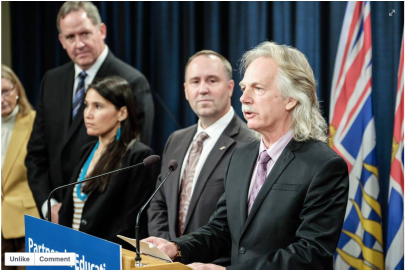
September 28, 2015
(Adapted from https://www.facebook.com/BCTeachersFederation)
BCTF President Jim Iker, along with representatives of all the education partner groups, participated in a news conference in Victoria with Education Minister Mike Bernier to announce a collaborative plan for curriculum change implementation. The BCTF has been advocating for the time and resources needed to ensure teachers are well supported as the new curriculum is implemented.
Following several weeks of frank and collaborative conversations with senior staff of the Ministry of Education, the Federation was able to reach agreement on government investment of time and money into a curriculum implementation plan that involves teachers and locals in a meaningful way. Details of the announcement include:
• Two days of in-service this year, and two days over each of the next two years
• Collaboration between BCTF and Ministry to create framework for in-service
• $900,000 to release 2,000 teachers to plan the implementation days in their locals
• $100,000 to enable rural teachers to travel to in-service sessions
These in-service days are in addition to the existing professional development days. This announcement is an important first step in successfully rolling out the new curriculum, as teachers will get the time they need to meet, collaborate, and incorporate the changes into their professional practice.
One fundamental change in the new curriculum worth highlighting is that for many years, the BCTF has been strongly urging the inclusion of Aboriginal content and perspectives across all grade levels in BC’s curriculum. The BCTF is pleased that the BC government now agrees and has taken that to heart.
The BCTF once again extends its thanks to the more than 100 members who served on the redesign teams. Their deep expertise and hard work have resulted in creative and progressive curricular change that will benefit teachers and students in classrooms province-wide.
Going forward, the BCTF will continue to advocate for more funding to improve teachers' working conditions and students’ learning conditions. As well, the BCTF will be push for additional funding and new classroom resources to support implementation of the revised curriculum.
(Adapted from https://www.facebook.com/BCTeachersFederation)
BCTF President Jim Iker, along with representatives of all the education partner groups, participated in a news conference in Victoria with Education Minister Mike Bernier to announce a collaborative plan for curriculum change implementation. The BCTF has been advocating for the time and resources needed to ensure teachers are well supported as the new curriculum is implemented.
Following several weeks of frank and collaborative conversations with senior staff of the Ministry of Education, the Federation was able to reach agreement on government investment of time and money into a curriculum implementation plan that involves teachers and locals in a meaningful way. Details of the announcement include:
• Two days of in-service this year, and two days over each of the next two years
• Collaboration between BCTF and Ministry to create framework for in-service
• $900,000 to release 2,000 teachers to plan the implementation days in their locals
• $100,000 to enable rural teachers to travel to in-service sessions
These in-service days are in addition to the existing professional development days. This announcement is an important first step in successfully rolling out the new curriculum, as teachers will get the time they need to meet, collaborate, and incorporate the changes into their professional practice.
One fundamental change in the new curriculum worth highlighting is that for many years, the BCTF has been strongly urging the inclusion of Aboriginal content and perspectives across all grade levels in BC’s curriculum. The BCTF is pleased that the BC government now agrees and has taken that to heart.
The BCTF once again extends its thanks to the more than 100 members who served on the redesign teams. Their deep expertise and hard work have resulted in creative and progressive curricular change that will benefit teachers and students in classrooms province-wide.
Going forward, the BCTF will continue to advocate for more funding to improve teachers' working conditions and students’ learning conditions. As well, the BCTF will be push for additional funding and new classroom resources to support implementation of the revised curriculum.
|
September 4, 2015
BC Deputy Minister of Education, Dave Byng, writes to BC School teachers and administrators highlighting some the changes with BC's new curriculum. Read the full letter. Some of the highlights contained therein include:
|
| ||
BCATML participates in panel discussion on the Core French curriculum:
|
August 27, 2015
BCATML's Executive members Nancy Griffith-Zahner and Rome Lavrencic provided highlights to the Core French curriculum redesign at this year's BCTF Summer Leadership Conference in Kamloops. Using the Periscope App, and permission by the BCTF, BCATML captured the Core French Curriculum highlights portion of the panel discussion highlighting some of the new elements in the curriculum as well as some of the challenges Core French teachers may face. We invite you to write your comments about this session on our News page after watching today's short video (7:35). |
|
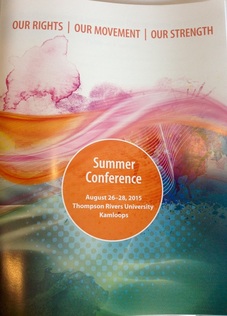
August 25, 2015
BCTF's Summer Leadership Conference begins tomorrow at Thompson River University in Kamloops with plenary sessions on a variety of topics pertinent to our profession: Professional Development, Professional Specialist Associations and membership engagement to name but a few. Janice Neden, Assistant Director of Professional and Social Issues (BCTF), will facilitate a panel discussion on BC's new curricula called Curriculum Matters: A status update on the proposed BC curriculum and related areas. BCATML Executive members Nancy Griffith-Zahner and Rome Lavrencic will be on the panel to speak to and provide updates on the Core French curriculum. BC's other published curricula will also be represented and discussed.
Rome Lavrencic is currently negotiating with the BCTF to use Periscope (a new free App for iPhones and Android devices) in order to live stream the session. If approved, @BCATML Twitter followers will be able to view the panel discussion in real time and be able to tweet questions live to panelists. The BCTF will record the panel discussion and make it available for teachers later. However, if approval is given to "periscope" the discussion, Twitter teachers anywhere in the province (or elsewhere) will be able to participate and ask their own questions during the event. Be sure to follow us @BCATML and participate. The discussion is Thursday August 27th, between 3:45 - 5:15 pm (Pacific Time).
BCTF's Summer Leadership Conference begins tomorrow at Thompson River University in Kamloops with plenary sessions on a variety of topics pertinent to our profession: Professional Development, Professional Specialist Associations and membership engagement to name but a few. Janice Neden, Assistant Director of Professional and Social Issues (BCTF), will facilitate a panel discussion on BC's new curricula called Curriculum Matters: A status update on the proposed BC curriculum and related areas. BCATML Executive members Nancy Griffith-Zahner and Rome Lavrencic will be on the panel to speak to and provide updates on the Core French curriculum. BC's other published curricula will also be represented and discussed.
Rome Lavrencic is currently negotiating with the BCTF to use Periscope (a new free App for iPhones and Android devices) in order to live stream the session. If approved, @BCATML Twitter followers will be able to view the panel discussion in real time and be able to tweet questions live to panelists. The BCTF will record the panel discussion and make it available for teachers later. However, if approval is given to "periscope" the discussion, Twitter teachers anywhere in the province (or elsewhere) will be able to participate and ask their own questions during the event. Be sure to follow us @BCATML and participate. The discussion is Thursday August 27th, between 3:45 - 5:15 pm (Pacific Time).
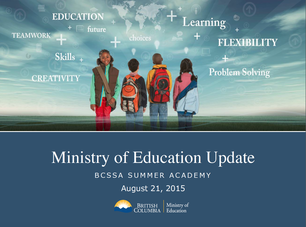
August 21, 2015
The British Columbia School Superintendents Association (BCSSA) conducted a Summer Academy event in Kelowna, BC and shared a Ministry of Education update on the new curricula. They released a document outlining information about the curriculum redesign, as well as details and information pertaining to proposed implementation dates (different for K-9 and 10-12), changes to school districts, assessment and report cards, as well as continued professional development.
Read the full document by clicking here.
The British Columbia School Superintendents Association (BCSSA) conducted a Summer Academy event in Kelowna, BC and shared a Ministry of Education update on the new curricula. They released a document outlining information about the curriculum redesign, as well as details and information pertaining to proposed implementation dates (different for K-9 and 10-12), changes to school districts, assessment and report cards, as well as continued professional development.
Read the full document by clicking here.
| bcssa_summeracademy_minofed_update.pdf |
July 14, 2015
BCATML is excited to announce that the Ministry of Education has released the new draft of BC's Core French Curriculum. It can be viewed by clicking here or visit https://curriculum.gov.bc.ca/curriculum.
We encourage all interested stakeholders to review this transformative document and send in your feedback, suggestions and comments over the next few months. Some ways in which to provide feedback to the new Core French Curriculum draft is to send an email with your comments to [email protected] or you can participate in a workshop on the new curriculum led by Laura Hawkes at our Celebrating Languages Conference on Friday, October 23, 2015 at Burnaby South Secondary School. Registration will open for this event during the last week of August.
When providing feedback, please keep the following suggestions from Laura Hawkes in mind:
- Be as specific as possible. The Core French Curriculum Working Group will revise the draft based on the feedback received. It is much more difficult to make revisions based on general comments such as, "The curriculum is too vague", and much easier to act on specific feedback such as, "I have trouble understanding the Curriculum Competencies x y and z in Grade 6 because they use technical language that is not explained in the elaborations."
- Indicate what you like as well as what you don't like. As much as we need to know what we need to change, we also need to know what you like and what we need to ensure to keep. The last thing we would want to do is change the things you liked best about the draft!
- Give us some context. It is helpful for us if we know a little bit about who is providing the feedback. We want ensure that we hear feedback from people representing a wide range of perspectives and teaching contexts.
It is expected that the Core French Curriculum Working Group will reconvene early in the new year to review the comments received and make modifications to the current draft.
BCATML is excited to announce that the Ministry of Education has released the new draft of BC's Core French Curriculum. It can be viewed by clicking here or visit https://curriculum.gov.bc.ca/curriculum.
We encourage all interested stakeholders to review this transformative document and send in your feedback, suggestions and comments over the next few months. Some ways in which to provide feedback to the new Core French Curriculum draft is to send an email with your comments to [email protected] or you can participate in a workshop on the new curriculum led by Laura Hawkes at our Celebrating Languages Conference on Friday, October 23, 2015 at Burnaby South Secondary School. Registration will open for this event during the last week of August.
When providing feedback, please keep the following suggestions from Laura Hawkes in mind:
- Be as specific as possible. The Core French Curriculum Working Group will revise the draft based on the feedback received. It is much more difficult to make revisions based on general comments such as, "The curriculum is too vague", and much easier to act on specific feedback such as, "I have trouble understanding the Curriculum Competencies x y and z in Grade 6 because they use technical language that is not explained in the elaborations."
- Indicate what you like as well as what you don't like. As much as we need to know what we need to change, we also need to know what you like and what we need to ensure to keep. The last thing we would want to do is change the things you liked best about the draft!
- Give us some context. It is helpful for us if we know a little bit about who is providing the feedback. We want ensure that we hear feedback from people representing a wide range of perspectives and teaching contexts.
It is expected that the Core French Curriculum Working Group will reconvene early in the new year to review the comments received and make modifications to the current draft.
| core-french_learning_standards.pdf |
May 7, 2015
BCATML had an amazing turnout during last night's Twitter chat discussing the work BCATML has been involved with in writing the Core French curriculum with the other members of the Core French Curriculum Working Group. Moderator Stacia Johnson led the discussion for teachers from all parts of BC. Curriculum team members Nancy Griffith-Zahner, Stacey Sveistrup and Rome Lavrencic were joined by Curriculum Coordinator Laura Hawkes from the Ministry of Education and provided their input and understandings of the work done to date from the three sets of meetings. Highlights from the chat have been archived, and we encourage you to review the comments by clicking here, or by visiting: https://storify.com/staciajo33/bcatml-chat-about-new-fsl-curriculum.
BCATML had an amazing turnout during last night's Twitter chat discussing the work BCATML has been involved with in writing the Core French curriculum with the other members of the Core French Curriculum Working Group. Moderator Stacia Johnson led the discussion for teachers from all parts of BC. Curriculum team members Nancy Griffith-Zahner, Stacey Sveistrup and Rome Lavrencic were joined by Curriculum Coordinator Laura Hawkes from the Ministry of Education and provided their input and understandings of the work done to date from the three sets of meetings. Highlights from the chat have been archived, and we encourage you to review the comments by clicking here, or by visiting: https://storify.com/staciajo33/bcatml-chat-about-new-fsl-curriculum.
|
|
|
May 6, 2015
BCATML will host it's second Twitter chat on Wednesday May 6th starting at 6 pm, using the hashtag #BCATML. Stacia Johnson will host our Twitter chat and lead parents, teachers, educators and other stakeholders in understanding the new Core French curriculum. If you do not have a Twitter account, you can follow along and participate in the chat by scrolling down to the bottom of our home page. Feel free to type your 140 character "tweet" or questions.
In preparation for this chat, we invite you to peruse the supplementary material we have compiled. It explains the major points of the Core French curriculum redesign process.
BCATML will host it's second Twitter chat on Wednesday May 6th starting at 6 pm, using the hashtag #BCATML. Stacia Johnson will host our Twitter chat and lead parents, teachers, educators and other stakeholders in understanding the new Core French curriculum. If you do not have a Twitter account, you can follow along and participate in the chat by scrolling down to the bottom of our home page. Feel free to type your 140 character "tweet" or questions.
In preparation for this chat, we invite you to peruse the supplementary material we have compiled. It explains the major points of the Core French curriculum redesign process.
|
|
| ||||||
|
April 24, 2015
The Core French Curriculum Working Group is proud to announce that we have produced a workable draft of the Core French curriculum for grades 5-12. Today, the committee broke off into teams to complete the revisions to the Content and Curricular Competencies for each grade level. This monumental task required looking at the Big Ideas for each grade and ensuring that they were supported by the Content and Core Competencies while making any necessary changes from one document to the other. Once this was complete, each member of the team reflected on the finalized consolidated document and made annotations by writing questions for clarity or by making suggestions for improvement. The Ministry will review these comments and release a preliminary draft late this summer. While the committee work has been finalized, there still remains some additional tasks for the team to complete prior to releasing the draft to BC teachers, parents, and other stakeholders. Instructional samples still need to be developed. This support material will show a direct connection to the revised curriculum, including Big Ideas. The instructional samples will be for teacher to understand what this could look like in the classroom rather than being a repository to print off cookie-cutter, ready-made lesson plans. The timelines below indicate the approximations for when tasks are anticipated to be completed: May - October: Instructional samples to be submitted Late summer 2015: Core French curriculum draft will be posted Sept - Dec. 2015: Draft open for feedback from the field Jan - Feb. 2016: Revision phase to begin Summer 2016: post revised version on the web We have worked hard to develop a document that we feel will be transformative for BC's Core French programs. It is our hope that this document will not only support our students, but also challenge them to reflect on their life-long learning process to become better enlightened and engaged global citizens. To learn more about the new draft Core French curriculum, please join our open Twitter chat on Wednesday May 6th, 2015 at 6 pm (Pacific) using #BCATML. |
|
|
April 23, 2015
Work continued today on the Content and Curricular Competencies for grades 5-12 by making revisions and modifications to work from yesterday. Again, the goal was to ensure that there was a natural progression and continuity in the content and curricular competencies across the grades. The teams kept in the forefront of their work how to make this new curriculum transformative and not a repackaging of the "old think". The committee spent a great deal of time discussing the content of the Front Matter, which is the introduction to the curriculum. The Front Matter is important to teachers as it outlines the philosophies and direction of the curriculum. We worked on what's new in this curriculum, and what elements of old curricula have been preserved as well as how the new curriculum is concept-based and competency-driven while always considering the application to 21st Century learning. Inquiry-based learning, real world connections and hands-on learning are always the essence of this new curriculum. Tomorrow's work will be to consolidate the Content, Curricular Competencies, Big Ideas and over-arching Goals for Core French into a workable draft. |
|
April 22, 2015
The Core French Curriculum Working Group returned to the Ministry of Education today for our third set of meetings to redesign BC's Core French curriculum. Over the last few months, all members were given homework to create curriculum in teams of two for grades 5-12 using the KUD model (Know-Understand-Do) from a variety of pedagogies and approaches. This week's goal is to design a draft document for all grades and to ensure continuity in the Content, Curricular Competencies and Big Ideas. Ministry Curriculum Coordinator Laura Hawkes shared a Tagul word cloud she created with the committee that encapsulates the volume and scope of work we have achieved to date. The primary task for today was to examine the Big Ideas from each grade group and to ensure continuity and logical progression from one grade level to the next, while at the same time reducing any repetition and making any necessary changes. This exercise was brilliantly designed to allow the group to take a step back and see where there were gaps horizontally for each grade level as well as vertically for similarly linked Big Ideas. Finally, the committee began the arduous process of examining each grade group's Content and Curricular Competencies to ensure the same level of continuity throughout. |
January 30, 2015
Information on the graduation component of the new curriculum has been posted by the Ministry here. Look for the heading Graduation Years Curriculum: Proposed Directions.
The document describes some proposed directions for Grades 10, 11, and 12, although it is unclear what will happen with Grade 10. In the report “Enabling Innovation: Transforming Curriculum and Assessment” the Ministry provided guidelines for structuring curriculum in three phases: Formative years (K‒5), middle years (6‒9/10), and graduation years (10/11‒12). At the time of the document’s publication the placement of Grade 10 was undecided, and this is still the case.
While many elements of the graduation program are currently under discussion, some directions are emerging. Here is a summary of the proposed directions:
· The graduation years curriculum will consist of provincial common required learning standards (the set of learning standards that all students must study) and personalized learning standards (provincial electives and locally developed options).
· Elements of the K–9 curriculum should continue to be used to structure curriculum in the graduation years. These elements define what students are expected to know, understand, and be able to do (content, big ideas, and curricular competencies).
· There is an emphasis on interdisciplinary learning environments. Although the curriculum is organized under domains, it does not mean that schools and teachers need to organize schools or instruction in this manner. The Ministry anticipates that schools and classrooms will be organized in various ways to respond to the learning needs of the students and their communities (as many schools in the province currently do). For example, some schools combine social sciences, language arts, and the arts under the category of humanities.
· Teachers might want to structure their programs to organize the learning as interdisciplinary inquiries focused on project-based learning, problem-based learning, or learning through design. Others may want to offer independent study options. No matter how the curriculum is organized, students are expected to learn the provincial common curriculum in the graduation years. For example, within the domain of social sciences, there will be choices presented as provincial electives. These provincial electives, along with locally developed programs, form the personalized portion of the graduation program.
· Curriculum for the graduation years will be developed within domains. A domain is a broad category under which one or more subject areas fit. It is proposed that the provincial graduation years curriculum be drawn from these domains:
o arts
o career exploration
o design and technical skills
o healthy living
o language arts
o languages
o mathematics
o science
o social sciences
Watch for opportunities to give your input on these proposed changes. Ideally, districts should be offering in-service opportunities to give teachers time to look at these curriculum changes. Pro-D chairs should be wary of requests from administrators to access teacher Pro-D time for curriculum implementation.
Information on the graduation component of the new curriculum has been posted by the Ministry here. Look for the heading Graduation Years Curriculum: Proposed Directions.
The document describes some proposed directions for Grades 10, 11, and 12, although it is unclear what will happen with Grade 10. In the report “Enabling Innovation: Transforming Curriculum and Assessment” the Ministry provided guidelines for structuring curriculum in three phases: Formative years (K‒5), middle years (6‒9/10), and graduation years (10/11‒12). At the time of the document’s publication the placement of Grade 10 was undecided, and this is still the case.
While many elements of the graduation program are currently under discussion, some directions are emerging. Here is a summary of the proposed directions:
· The graduation years curriculum will consist of provincial common required learning standards (the set of learning standards that all students must study) and personalized learning standards (provincial electives and locally developed options).
· Elements of the K–9 curriculum should continue to be used to structure curriculum in the graduation years. These elements define what students are expected to know, understand, and be able to do (content, big ideas, and curricular competencies).
· There is an emphasis on interdisciplinary learning environments. Although the curriculum is organized under domains, it does not mean that schools and teachers need to organize schools or instruction in this manner. The Ministry anticipates that schools and classrooms will be organized in various ways to respond to the learning needs of the students and their communities (as many schools in the province currently do). For example, some schools combine social sciences, language arts, and the arts under the category of humanities.
· Teachers might want to structure their programs to organize the learning as interdisciplinary inquiries focused on project-based learning, problem-based learning, or learning through design. Others may want to offer independent study options. No matter how the curriculum is organized, students are expected to learn the provincial common curriculum in the graduation years. For example, within the domain of social sciences, there will be choices presented as provincial electives. These provincial electives, along with locally developed programs, form the personalized portion of the graduation program.
· Curriculum for the graduation years will be developed within domains. A domain is a broad category under which one or more subject areas fit. It is proposed that the provincial graduation years curriculum be drawn from these domains:
o arts
o career exploration
o design and technical skills
o healthy living
o language arts
o languages
o mathematics
o science
o social sciences
Watch for opportunities to give your input on these proposed changes. Ideally, districts should be offering in-service opportunities to give teachers time to look at these curriculum changes. Pro-D chairs should be wary of requests from administrators to access teacher Pro-D time for curriculum implementation.
|
January 21, 2015
The Graduation Curriculum: Proposed Directions has now been posted online for public review. Feel free to share with your networks. Click here to visit the link directly. It can also be found through the announcements section of the Transforming Curriculum & Assessment home page: https://curriculum.gov.bc.ca/ Of particular note for Second Language teachers is the fact that at our meetings earlier this month, the Ministry of Education agreed to include the domain of Languages under the Graduation Years Curriculum (see page 2). Unlike the other curricula areas which have already been written and published online, the Core French Curriculum Working Group is actually in the process of writing curriculum for Grades 10-12 at the same time as for Grades 5-9. The Core French Curriculum Working Group is scheduled to reconvene in Victoria mid April.
|
| ||
January 19, 2015
Registration for the Victoria tri-district professional development day in Victoria is now open! Click here to register now!
Laura Hawkes and Claire Guy will provide an overview and update of the Core French curriculum redesign at this event.
The SATML Professional Development day in Surrey has been postponed. Nancy Griffith-Zahner and Rome Lavrencic were to present an overview and update of the Core French curriculum redesign.
The BCLCA will provide updates on the newly released French Immersion and Français langue première curricula at the Bear Mountain Resort in Victoria on April 9-10, 2015. Click here for more information.
Registration for the Victoria tri-district professional development day in Victoria is now open! Click here to register now!
Laura Hawkes and Claire Guy will provide an overview and update of the Core French curriculum redesign at this event.
The SATML Professional Development day in Surrey has been postponed. Nancy Griffith-Zahner and Rome Lavrencic were to present an overview and update of the Core French curriculum redesign.
The BCLCA will provide updates on the newly released French Immersion and Français langue première curricula at the Bear Mountain Resort in Victoria on April 9-10, 2015. Click here for more information.
January 9, 2015
Today was the last day for curriculum writing for grades 5, 8 and 12 of the Core French Curriculum Working Group. The committee succeeded in developing and anchoring a workable template for all grades. We will convene again in late April to review the drafts conducted to date, as well as the curriculum that the committee will complete in our respective parts of British Columbia.
In order to complete the curriculum for the remaining grades, pairings were created within the committee which were then assigned to different grade levels. This work will be completed by early April where it will be compiled and reviewed by the entire committee when we reconvene in Victoria. The revisions and edits will be examined closely to ensure continuity in the Core French curriculum across the grades and to foster a growth mindset towards learning. It is expected that the draft versions will undergo many edits, revisions, and transformations between now and our next meeting. While we are still far from completion, progress has been made during this productive and collaborative week. Our mantra during this process has been that the journey is the destination.
Interested in learning more about the French curriculum redesign? Check out the following opportunities:
Friday February 20, 2015:
Laura Hawkes and Claire Guy will provide further updates at the Victoria Tri-District Professional Development day on Vancouver Island.
Nancy Griffith-Zahner and Rome Lavrencic will present updates at the SATML Professional Development day in Surrey. (This event has been postponed.
Today was the last day for curriculum writing for grades 5, 8 and 12 of the Core French Curriculum Working Group. The committee succeeded in developing and anchoring a workable template for all grades. We will convene again in late April to review the drafts conducted to date, as well as the curriculum that the committee will complete in our respective parts of British Columbia.
In order to complete the curriculum for the remaining grades, pairings were created within the committee which were then assigned to different grade levels. This work will be completed by early April where it will be compiled and reviewed by the entire committee when we reconvene in Victoria. The revisions and edits will be examined closely to ensure continuity in the Core French curriculum across the grades and to foster a growth mindset towards learning. It is expected that the draft versions will undergo many edits, revisions, and transformations between now and our next meeting. While we are still far from completion, progress has been made during this productive and collaborative week. Our mantra during this process has been that the journey is the destination.
Interested in learning more about the French curriculum redesign? Check out the following opportunities:
Friday February 20, 2015:
Laura Hawkes and Claire Guy will provide further updates at the Victoria Tri-District Professional Development day on Vancouver Island.
Nancy Griffith-Zahner and Rome Lavrencic will present updates at the SATML Professional Development day in Surrey. (This event has been postponed.
|
January 8, 2015
Today, the Core French Curriculum Working Group reviewed the structure of Core French programs across the province, including the use of Intensive French. It came as no surprise to the committee that few districts have specialists teachers who deliver Core French at the elementary or middle years levels (with the exception of Saanich and Surrey school districts). Without more specialist teachers at the grassroots level, Core French programs in BC are at a disadvantage. Dr. Wendy Carr, former BCATML president, conducted a comprehensive study in 2007 - the largest and only study to date - that examined the state of Core French programs in BC. The study highlights factors affecting the quality of Core French teaching and learning, particularly at the elementary and middle years levels. While the study was conducted in 2007 the results of the surveys are as relevant today as they were then. This report was shared with the Core French Curriculum Working Group. While Intensive French is still in its infancy in only a limited number of schools in the province, it was agreed that this literacy-based approach to teaching Core French shows great promise. The rest of the day centred around writing actual curriculum for Core French programs for grades 5, 8 and 12 applying the KDU model as the framework. Big Ideas were supported by Content and Curricular Competencies for each of these grade levels. Further work and revisions to these draft documents will continue tomorrow. |
| ||
|
January 7, 2015
Four representatives of BCATML's Executive returned this week to the Ministry of Education in Victoria for our second round of meetings to redesign the Core French curriculum that was started in October 2014. The team is composed of 12 teachers and administrators both from the public and private school system in various locations of the province. We are led by Laura Hawkes - Curriculum coordinator from the Ministry and Claire Guy - Assistant Superintendent, Langley. One of our objectives this week is to take the big ideas and goals we produced last fall, along with the 2011 draft French curriculum and apply both to a Know-Understand-Do (KUD) model. The graphic to the right helps illustrate how the KUD model is interconnected by concepts. This model allows students' knowledge of course content and their application of curricular competencies to reach a deeper understanding of the bigger ideas which the new curriculum will offer. This 3-Dimensional learning model goes beyond learning facts and skills alone. Students will raise their knowledge to the conceptual level while practicing the competencies of the discipline. The goal is to create a shift from "covering facts" to "using facts and skills to understand concepts and big ideas". It is hoped that the Core French Curriculum Working Group will develop a draft for grades 5, 8 and 12 later this week in a rudimentary form. More updates will be provided soon. |

